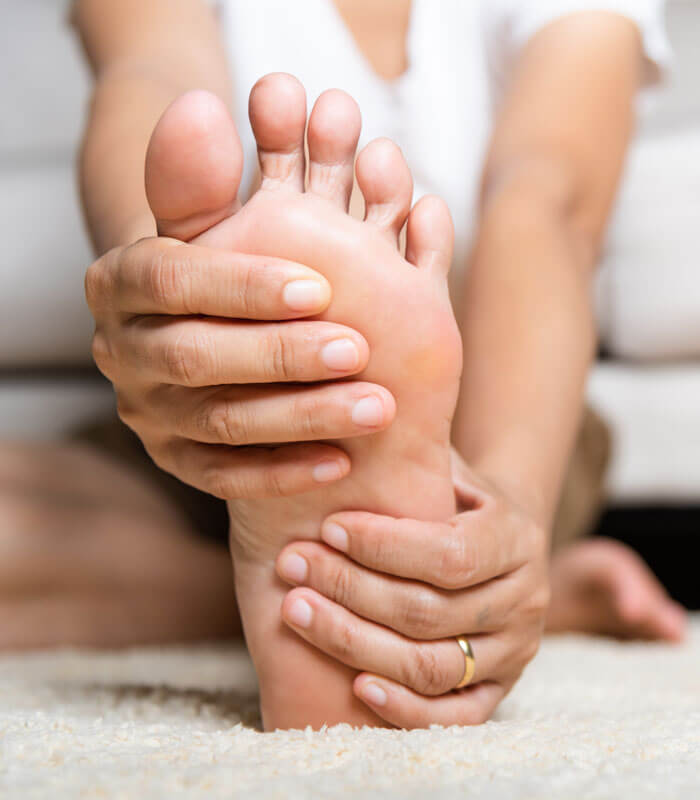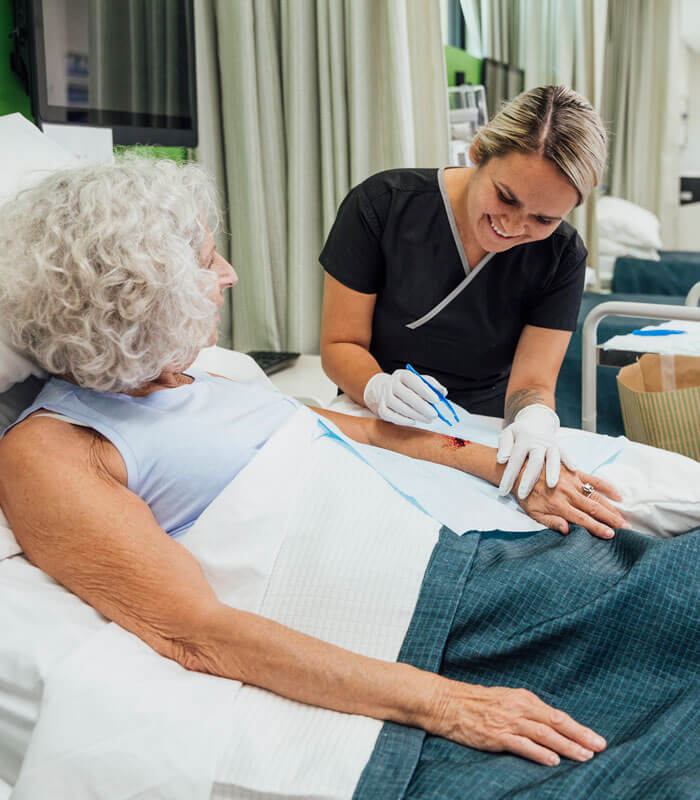Wound Types
Types of Wounds in the South Dallas Area
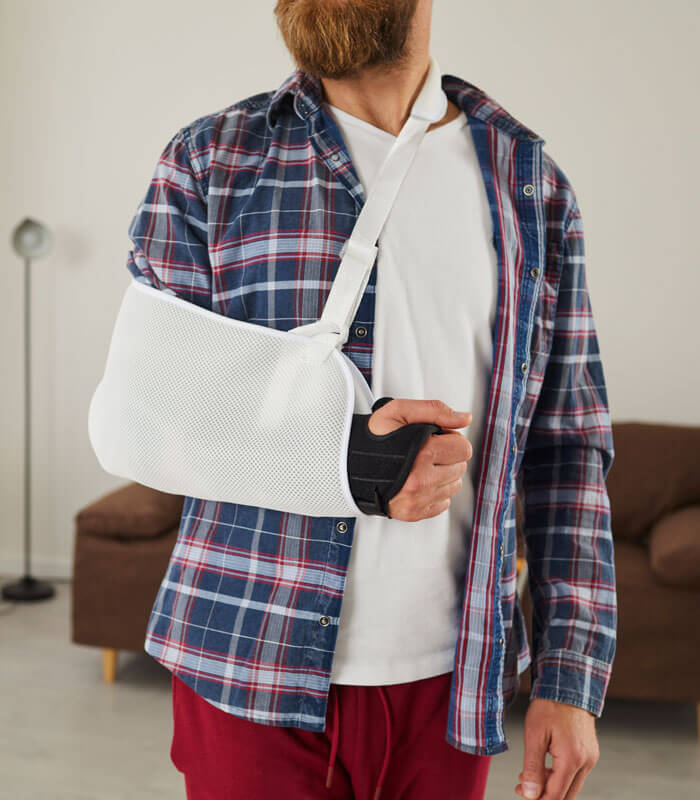
Bone Infection Wounds
Osteomyelitis, or bone infection, occurs when a bloodstream infection spreads to the bones and tissues, causing swelling and inflammation.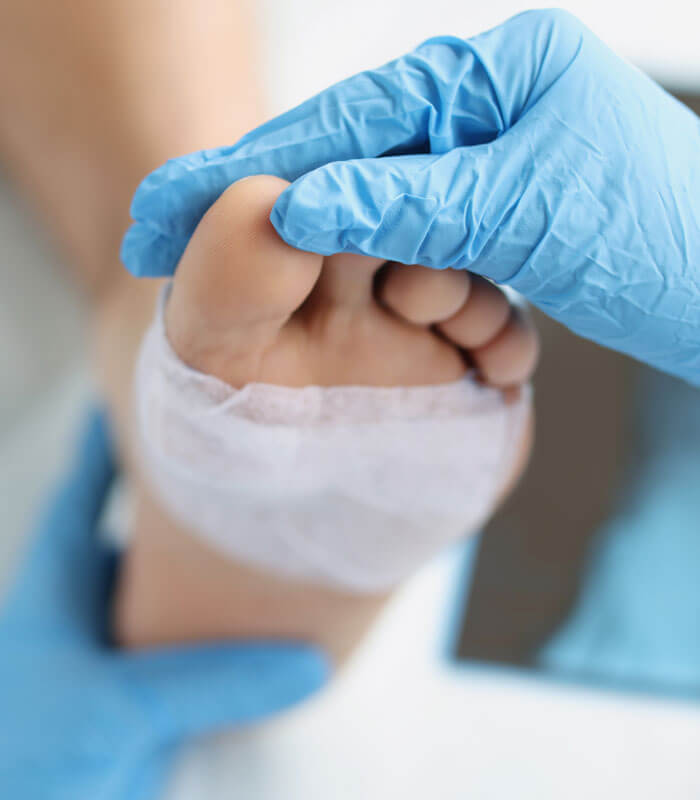
Non-Healing Surgical Wounds
If you've recently undergone surgery, but the incisions haven't healed on time or correctly, we can treat you.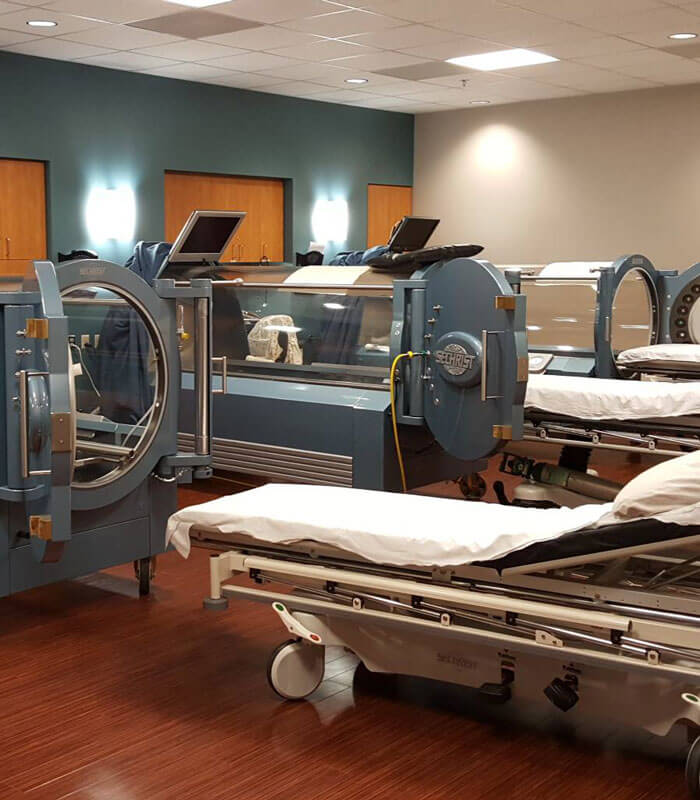
Radiation Tissue Wounds
Though radiation is often used to treat cancer, it can sometimes cause complications like wounds and delayed healing.
Venous Leg Ulcers
Stasis ulcers, or venous leg ulcers, form in the lower leg and create excessive pressure on the vein, weakening blood flow.Major Wound Categories
- Acute Wounds—Surgical non-healing wounds, burns, and trauma-related injuries.
- Chronic Wounds—Diabetic ulcers, venous leg ulcers, pressure injuries, and radiation damage.
- Open Wounds—This category includes wounds with broken or exposed skin.
- Closed Wounds—Damage, such as bruises or crush injuries, occurs beneath the skin.
What Are the Types of Chronic Wounds?
- Diabetic foot ulcers
- Venous leg ulcers resulting from poor blood flow
- Pressure ulcers from prolonged sitting or lying
- Arterial ulcers caused by poor circulation and oxygen supply to the tissues
Post-Surgical & Traumatic Wounds
Surgical wounds that don’t heal as expected may become complex and require advanced treatment. Trauma-related wounds from accidents or injuries can also be deep, irregular, or prone to infection. These types of wounds often involve multiple layers of skin and tissue. We care for the following post-surgical and traumatic wounds:
- Non-healing surgical incisions
- Skin graft sites and flap surgeries
- Wounds from accidents or falls
- Crush injuries and puncture wounds
Effective Care for Infected Wounds
Infections are a serious concern for any wound. Signs may include redness, warmth, swelling, pain, foul odor, or unusual drainage. Recognizing the types of wound infections and addressing them early helps prevent complications like sepsis or tissue death. We treat all common types of wound infections, including:
- Cellulitis (skin infection around the wound)
- Abscesses or collections of pus
- Necrotic tissue from an untreated infection
- Drainage with unusual color, consistency, or smell
Treatment for Radiation-Induced Wounds
Radiation therapy can damage skin and underlying tissues, especially in areas with reduced blood flow. These wounds often appear weeks or months after cancer treatment. They can be painful, slow to heal, and challenging to manage without expert care. Our team uses advanced therapies, such as hyperbaric oxygen treatment, to improve circulation, reduce tissue damage, and support healing. Common radiation-related wounds we treat include:
- Radiation ulcers
- Skin breakdown near treated tumors
- Delayed surgical wound healing in radiated areas
When to See a Specialist for Wound Treatment
Wounds that don’t heal on their own or show signs of infection require treatment from a specialist. If your wound has lasted more than two weeks, is getting larger, or has visible signs of infection, don’t wait. Early intervention can prevent serious problems and improve healing results. You should seek care if:
- Your wound is painful, red, or draining fluid.
- You have underlying health issues like diabetes or poor circulation.
- There’s an odor, change in color, or fever.
- You’ve had a wound for longer than two weeks without improvement.
Why Choose DFW Wound & Hyperbarics PA?
- Two locations serving South Dallas and nearby cities
- Personalized wound care plans
- Access to hyperbaric oxygen therapy and advanced treatments
- Strong results and long-standing patient trust
- Close coordination with your primary care doctor or specialist


